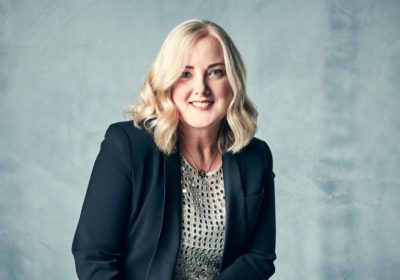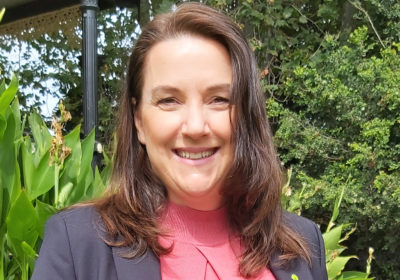
- Author: Staff writers
- Posted: February 15, 2024
Setting up for Success Ahead of Mandatory Climate Reporting
CFO Magazine A/NZ Editor, Richard McBride, had the opportunity to sit down with Sophie MacIntosh, Chief Legal and Sustainability Officer & Company Secretary to Smartsalary, part of the Smartgroup Corporation, ahead of Australia’s climate reporting mandate, to discuss the challenges and opportunities for CFOs.
RM – The Federal Government has released a draft legislation to introduce mandatory climate-related reporting requirements for organisations. This is a significant change that will take effect from FY24-25. Can you tell us how this may impact CFOs?
SM – For CFOs, this marks a pivotal shift towards integrating sustainability into the financial functions of their companies. It necessitates a comprehensive review of climate disclosures and a forward-looking plan that addresses financial risks associated with climate change. CFOs must bridge any gaps in their organisation’s sustainability efforts by making further sustainable investments or seeking external expertise. This legislation mandates compliance and steers organisations towards a sustainable future, with CFOs at the helm.
The legislation adopts a tiered approach to compliance, starting with larger entities in Group 1—those with $500 million in revenue, $1 billion in assets, or more than 500 employees — followed by progressively smaller organisations in subsequent phases, with all in scope organisations reporting by 2028. Depending on feedback, the government may delay the implementation to January 2025.
RM – What are the benefits for organisations to disclose their climate-related risks and opportunities?
SM – This initiative opens up avenues for organisations to meet baseline compliance and distinguish themselves as sustainability leaders. Companies can enhance their market position and stakeholder trust by demonstrating a commitment to creating long-term value and resilience. By adopting a proactive and strategic approach, CFOs can turn compliance into a competitive advantage.
Moreover, these disclosures encourage robust risk management practices, including scenario analysis to understand the potential impacts and opportunities from climate change on business operations. This foresight can foster a strong reputation for corporate social responsibility and potentially boost demand and revenue. Beyond compliance, this invites operational efficiency and cost savings through resource efficiency, painting a future where sustainability and profitability are intertwined.
RM – What are the steps that CFOs can take now in preparation for the mandated disclosures in order to be more forward-looking and ensure they’re compliant?
SM – The initial step involves gaining a clear understanding of the organisation’s current carbon footprint, a foundational element in crafting a climate strategy that addresses both immediate and long-term risks.
Setting a climate strategy requires collaboration across the organisation, potentially through a dedicated sustainability committee, with Executive and Board accountability and endorsement. This process involves setting tangible targets, implementing a plan for governance and risk management, and ensuring that the organisation is compliant and positioned as a leader in sustainability.
The Task Force on Climate-related Financial Disclosures (TCFD) has created a beneficial framework which helps organisations disclose climate-related risks and opportunities through their existing reporting processes, with many of these disclosure categories being carried into the new Mandatory Climate Reporting Framework. Alignment with TCFD is a helpful intermediary step for organisations to take as they prepare to move to the new reporting regime.
RM – The new rules would also require reporting on Scope 1, 2, and 3 greenhouse gas emissions, with Scope 3 normally making up most of the carbon impact for service-oriented organisations. What are some challenges that CFOs might face when reporting Scope 3 emissions, and how can they address them?
SM – When reporting Scope 3 emissions, CFOs face the daunting task of quantifying emissions that don’t directly stem from their operations. It’s the emission equivalent of herding cats – these numbers are influenced by factors not entirely within a company’s control, such as the supplier value chain or employee commuting habits.
By partnering with suppliers and stakeholders who are committed to sustainability, CFOs can create an aligned force for change. Focusing on transportation – a significant Scope 3 contributor – can yield substantial reductions. For instance, nudging employees towards electric vehicles (EVs) shrinks the carbon footprint and leverages savings under policies like the Federal Government Electric Car Discount Policy.
Companies like Smartsalary exemplify the smart integration of benefits for both employees and the environment, showcasing how salary packaging programs can be a dual force for boosting employee satisfaction and driving down Scope 3 emissions.
RM – Mandatory climate reporting is likely to have a significant impact on corporate action to drive a reduction in emissions. How is your organisation preparing for the requirements?
SM – Our organisation started actively preparing for the change around 2 years ago and we have continued the trajectory this year, reporting for our third year on our Scope 1, 2 and 3 carbon emissions and moving our reporting to full alignment with GRI standards, reporting in accordance with TCFD standards. As a Group 2 entity, we’ve set our sights on the 2026 milestone, with a goal to be fully compliant before our first year of regulation.
We’re harnessing the urgency to implement changes that will not only meet but exceed our targets, embedding sustainability into the very DNA of our operations.
RM – The effects of climate reporting means CFOs will need to be more mindful of Environmental, Social and Governance (ESG) and sustainability practices moving forward. What are some ways which organisations can invest in new opportunities as part of their net zero transformation?
SM -Rather than just investing in expensive offsets to meet Net Zero goals, many organisations are looking at other ways to reduce their emissions, particularly in the tricky area of Scope 3. Two of the easiest ways to positively impact Scope 3 emissions is to focus on your supply chain and on the way in which your employees are commuting to, from and at work.
Engaging with suppliers who share your common sustainability goals is a simple way to reduce your overall Scope 3 emissions and encourage other suppliers in your supply chain to improve their practices.
Separately, by focusing on how employee’s commute – a significant slice of Scope 3 emissions – you are not just promoting a greener way to work but actively investing in the wellbeing of our planet and people. The Government’s Electric Car Discount Policy has been a significant tailwind in this transition, making EVs more accessible for thousands of employers and employees across Australia.
At Smartsalary, we are proud to have been a key player in this transition. We put around 2,000 cars a month on the road for our novated leasing customers and, in 2023, 40% of these cars were EVs. We are investing heavily in this space to ensure that we can make the transition to an EV as seamless as it is impactful for our employer clients and their employees.
Smartsalary, a part of Smartgroup, is a leading packaging provider to government, healthcare, not-for-profit and corporate employers, helping around 400,000 Australians access salary packaging. If you want to transition your corporate fleet to EVs or help your employees save thousands of dollars in their own shift to an EV, we will make the transition a smooth one.
To learn more visit: www.smartsalary.com.au






